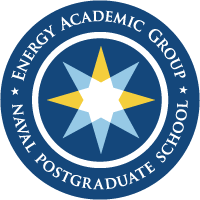July 25, 2023 - Energy Academic Group
Dual-Layer Energy Storage: Combining Redox Flow Batteries with Renewable Hydrogen Generation on Demand
July 25, 2023 | 12:00–12:50 pm PST | MAE Auditorium, Bldg #255 — Campus Map
Ertan Agar, PhD
Electrochemical Energy Systems and Transport Laboratory (E²STL)Department of Mechanical Engineering, Energy Engineering Graduate Program
University of Massachusetts Lowell
Abstract
Redox flow batteries (RFBs) are a promising energy storage technology that offers unique advantages for long-duration, grid-scale applications due to their ability to decouple energy and power ratings and the associated unprecedented scalability. However, the energy density of RFBs is intrinsically limited by the solubility of the redox active species in the electrolyte, resulting in energy densities approximately one order of magnitude lower than lithium-ion batteries. This presentation will introduce an innovative approach to address this limitation through the utilization of a dual-layer energy storage concept. With this concept, energy can either be stored in the liquid electrolyte of RFBs (i.e., traditional flow battery operation) or converted into hydrogen gas via redox-mediated electrocatalysis (i.e., indirect water electrolysis) when there is a surplus of electricity available. In this presentation, an overview of our ONR-funded project, which aims to demonstrate a manganese – vanadium RFB for energy storage and subsequent hydrogen generation will be provided.
Biography
Dr. Ertan Agar is an Associate Professor in the Department of Mechanical Engineering and the director of Electrochemical Energy Systems and Transport Laboratory (E²STL - https://agar-lab.com) at the University of Massachusetts Lowell. He earned his Ph.D. degree in Mechanical Engineering from Drexel University. His Ph.D. dissertation work was a combined experimental and modeling effort, aimed at understanding the species transport mechanisms governing capacity fade in vanadium redox flow batteries. Following his doctoral studies, Dr. Agar worked as a post-doctoral researcher in the Chemical Engineering Department at Case Western Reserve University. In this role, he worked on performance diagnostics of flowable slurry electrodes. His research focuses on design and diagnostics of flow-assisted electrochemical systems for the decarbonization of the energy and chemical manufacturing sectors (e.g., redox flow batteries, electrochemical cement production and water treatment cells). Dr. Agar is an active member of the Electrochemical Society and International Society of Electrochemistry. He also serves as the Faculty Lead for the UML I-Corps Site Program and the Regional Northeast I-Corps Hub.
Related Resources
Contact Us - Sidebar

